#but i would say demeter's role changing in the story is not necessarily a flaw in new tellings
Explore tagged Tumblr posts
Text
"Modern day Persephone and Hades retellings always do an injustice to Demeter, who wasn't a villain in the original myth. They unfairly turn a story of a mother's loss into a romance."
Counterpoint, this is an excellent example of how cultural anxieties can shift with time, as BOTH versions deal with women's fears of the day.
Back in Ancient Greece, it WAS a reasonable thing to fear never seeing your child again after they were married and apart from you in some far off locale. So yes, it makes sense that Demeter is a sympathetic figure here.
Meanwhile, that is not such a big fear today, as even if you can't travel to your family's physical location it's easier than ever to FEEL connected. And that is where the NEW interpretation comes in, as children may fear NEVER being a separate person from their parents, of never feeling themselves independent and of even passing down generational trauma.
Mythology and folklore are not static things, after all. They are reflections of the concerns of a particular time and place.
#greek mythology#demeter#greek gods#persephone#hades#i think i've finally put to words why this particular critique bothers me#there are of course other arguments to have such as the fairness of vilifying demeter when zeus starts this shit#and who gets to retell these ancient stories that belong to a culture still alive and practiced#but i would say demeter's role changing in the story is not necessarily a flaw in new tellings#or that either version is necessarily unfeminist
36 notes
·
View notes
Text
Phantom of the Opera: a tale as old as...
(This is gonna be long...)
Recently I’ve re-discovered my love for “Phantom of the Opera.” It started after I saw the 2017 rendition of the tale that’s as old as time “Beauty & the Beast,” which lead to my re-reading of favorite childhood novels, “Beauty” & “Rose Daughter” by Robin McKinley. Low & behold, right next to them on my book shelf was one of my all time favorites, Gaston Leroux’s “Phantom of the Opera.” It had been a while since I’d read any of them & in re-reading them with a slightly more wise, adult POV, & a bit more life experience, I was overjoyed that the experience felt much like the 1st in the fact that I realized many details in the stories that I’d missed when I was younger. It’s nice, leaving a favored stories behind for a while & then taking it back in with a fresher perspective.
Throughout this vast re-read, I had also at the time been doing research in Greek Mythology (for another project) & also happened to be reacquainting myself with the Hades/Persephone tale. The thing about mythology is that the stories alter in certain details over time. It’s not so different from books like “Phantom of the Opera” that have so many adaptations that they all get jumbled together in their influence over our interpretations of them. When it came to Hades/Persephone what irked me in my research was discovering that Zeus was lauded throughout history. In too many interpretations/re-tellings Zeus is seen as the caring father-figure, the loving grandfatherly-figure (if we’re talking about Disney’s animated Hercules), or the seductive all power God-King. He’s someone to respect. Right? Not really!

Zeus is a man who often came down to Earth to consort with human women (those who denied him its hinted that he raped them) & was NEVER faithful to any of his wives. What, you thought Hera was his only wife? The Greeks viewed him in a traditional Patriarchal sense & that has extended throughout each new adaptation of his character. However, after reading up on Zeus, he actually had a lot in common with his father Cronus, the tyrant Titan King (Cronus may have swallowed his own children, but guess what, so did Zeus - i.e. Athena). Throughout history, literature, & Hollywood he’s portrayed as a hero, an authority figure to be lauded (& perhaps that’s our own Patriarchal society influencing us). Zeus, is in reality, extremely unfaithful, hinted as being a seducer of women & a rapist, had much in common with a former tyrant (his father), etc. Hades is typically chosen as the epitome bad guy. I mean, he had to be bad, since he ruled the Underworld (a job he never even wanted)! Right? It was actually Hades’ power, strength, natural leadership & strategy skills during the 5 yr. war between the Olympians/Titans, the Titanomachy, that enabled the Olympians to win - it was also what caused Zeus to fear Hades & trick him into ruling the Underworld (which inevitably made people wary of Hades & eventually vilified him).
When Hades meets Persephone, falling madly in love with her, he’s unsure how to proceed. Hades actually goes to Zeus, telling his brother that he’s found a potential bride but is essentially uncertain how to proceed. “I’ll just ask my womanizing big brother, Zeus, he knows how to woo women.” (I’m paraphrasing, obviously, but you get the gist.) It is actually Zeus who suggests that Hades should kidnap Persephone. Which in itself, says more about Zeus than it does Hades, IMO!
Hades takes his brother’s advice & does as Zeus suggests, kidnapping Persephone. What’s interesting is the fact that while this 1st half of the story remains pretty consistent throughout the fogginess of history (myths do like to alter throughout time with each new interpretation of them) the 2nd half is open to much interpretation due the latter half being unclear of certain events. It’s a toss-of-the coin, a 50/50 chance; many philosophers & historians believe Persephone was taken against her will, while just as many of them suggest that Persephone saw Hades taking her to the Underworld as rescuing her from her overbearing, controlling mother, Demeter. Demeter also threatens to leave the world in a perpetual state of winter, essentially driving all of humanity into starvation, The same speculate as to whether Persephone knew what would happen if she ate those famed pomegranate seeds.
For any story that leaves room for speculation, I’ve found that it’s what people theorize that’s far more telling of THEM as people than it is of the actual story! When people theorize that Persephone was a victim, that she was tricked, that says more about the theorist than it does Persephone, b/c the theorist is the one that is turning Persephone into the victim, not necessarily the actual story. When theorists interprets/speculates that Persephone had an intelligence that enabled her to know what she was doing, that she made her own choices, it lends Persephone the agency she deserves as a person rather than choosing to victimize her! The story also hints that Hades truly loved Persephone given that he was pretty much the only Olympian who was faithful to his wife!
Moving forward, as I re-read “Phantom of the Opera” (as well as reading “Phantom” by Susan Kay for the first time) I began noticing parallels not just with stories like “Beauty & the Beast” but also Hades/Persephone.
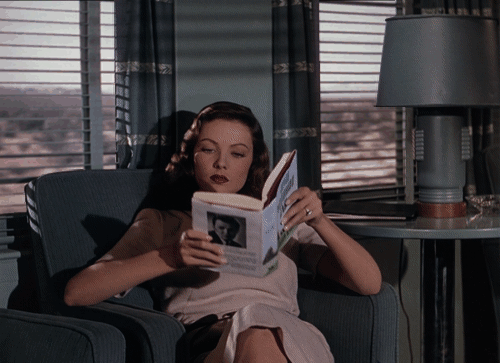
The most obvious parallels being: in comparison to “Beauty & the Beast” an ugly (cursed) man seeking the companionship of a woman who can love him in spite of his ugliness; in comparison to Hades/Persephone, when the Phantom absconds with Christine, taking her down to his lair to make her his bride. The latter parallel also reminds me of the french epic poem “Eloa” who is an agel that falls in love with a disguised Satan - he takes her to hell, not believing she could truly love him now that she knows the truth, but instead she chooses to stay with him regardless.
In particular the parallel to Hades/Persephone seemed to fit considering this particular quote from Leroux’s novel, “You must know that I am made of death, from head to foot, & it is a corpse who loves you & adores you & will never, never leave you!” Hades was often referred as Lord of Death since people feared speaking his actual name.
My foray into the various “Phantom of the Opera” adaptations also enlightened me to other aspects of parallelism & details that, as a child, I had not thought of until now with an adult perspective.
Fantasy vs. Reality...
In “Beauty & the Beast”, the ultimate reward for Belle in loving the Beast for who he is (not what he is) in the end, is that he transforms back into his handsome Princely self. As a children’s story B&B gets the message across; that beauty is more than just skin deep, teaches lessons of seeing beyond the obvious, acceptance & tolerance. But the ending is the real fantasy, the lie as it were, b/c in the real world the Beast would not become a Prince again. The real reward for Belle in reality would simply be the Beast’s love, not an alteration in his physicality. These fundamental changes in childhood stories are true within the concept of tales like “Beauty & the Beast” in comparison to whether we’re looking at the story with a child’s gaze or through an adult’s POV. There’s the fantasy we interpret as children, then there’s the reality we see as adults! This comparison is reflective between various adaptations of “Phantom of the Opera” & “Beauty & the Beast.” The fantasy being B&B where the beauty is rewarded for loving such a creature by him transforming into a handsome Prince, while the Phantom stays as he is.
Fantasy Love...
In “Phantom of the Opera” Raoul is referred to as “foppish boy,” that “insolent boy” but a boy all the same! His youth, education, title & wealth are the very things that most women think of in an ideal man. His overall role in Christine Daae’s life represents the sweetness of childhood. Raoul is, at 1st, presented in a very real aspect: his brief history with Christine, his lac of mystery making him seem normal; there’s no supernatural element to his character. However, as Raoul become a Love Interest to Christine, he’s rendered a sort of fairy-tale quality. The reality being that a man of Raoul’s social standing would likely not be able to/or even think to marry someone of Christine’s much lower social standing (he’s a Vicomte, she’s a mere chorus girl). That particular element gives their “love” a Cinderella” feel rendering Raoul as a sort-of Prince Charming. Erik, the Phantom, is flawed & referred to as the man of the story - he’s older, wiser, more experienced (even if those experiences have made him bitter). Leroux even calls Erik, “The man’s voice.” Raoul become less of a reality & more of a fantasy love, akin to a Prince Charming in a fairy-talewhile Erik, becomes less of a fantasy throughout the story & something far more tangible; he’s brutal & honestly flawed, an ugly reality of the world.
Each adaptation that I’ve come across seems to present Erik/Raoul to the reader as polar opposites. You have Raoul who Christine sees quite obviously as a real person (he’s not an Angel of Music, he’s not some Opera Ghost), he’s real flesh & blood, a youthful young man. They have some history together which solidifies Raoul’s presence as a normal guy in Christine’s life. There is no air of mystery. Yet, they come from completely different classes of society. Not unlike how Darcy, in reality, would never marry someone of such low social standing as Elizabeth Bennett (”Pride & Prejudice”). That’s the fantasy - the Prince Charming, Cinderella effect of the Raoul/Christine relationship. Where as there is no real social separation between Erik & Christine. Any expectations society gives for Christine to choose Raoul are the very things that make him a fantasy love: wealth, title, handsome, youth, etc. The fantasy itself is the very thing that lends an illusion of realism to Raoul as Christine’s love interest! He’s a fantasy that exists completely under an illusion of realism, IMO!
Christine: Growing Up...
This is where the jumbled various adaptations of a story become harder to separate, in this regard I’m essentially taking in a bit of every adaptation (this reminds me of Bram Stoker’s “Dracula” where in the original novel he’s not as handsome as Dracula is later perceived in later adaptations). In Leroux’s novel Christine has only known Erik, her Angel of Music for a few months (though at times it seemed like she’d known him much longer) whereas other adaptations show Erik being in Christine’s life much longer. As a child Christine looks upon Erik with a child’s gaze. 1st as her Angel of Music, seeing him as a literal Angel. Quickly morphing into the guidance of a teacher, & while he still remains her “mon ange” (my angel), he has also become her Maestro. At the same time he’s become the Opera Ghost. With each stage of Christine’s psyche, the illusion of Erik melts away; from Angel, to Maestro, to Phantom, until he is just a flesh & blood man. Where as Raoul remains a representation of Christine’s childhood & their “love” eludes to that youthful mindset - a childhood infatuation that’s as fleeting as the emotions experienced by other teenagers. Not unlike the comparative romantic relationship in “Gone with the Wind” (Scarlet clings to Ashley who represents life before the war, the last part of her childhood, of a time long gone; while ignoring her very real feelings for Rhett which represent something far more lasting & mature. You have Ashley, the idealist & Rhett, the realist). Raoul represents Christine’s past, her childhood idealism; Erik represents Christine’s growth b/c he’s seemingly a part of every phase of her life.
Christine’s Early Childhood - Raoul (varies with each adaptation)
Christine’s Later Childhood - Erik as her Angel of Music.
Christine’s Teen Yrs. - Erik as he Angel but also now taking on the role of Maestro, her teacher, while also being the mysterious Opera Ghost (something darker, more mysterious than the purity of an Angel).
Christine’s Adult Yrs. (moving into womanhood) - Erik, the illusions have fallen away & he’s now just a flesh & blood man!
The role Raoul seems to chiefly represent in Christine’s life is her past, there’s not much growth in their relationship beyond Raul wooing her. B/c her relationship with Erik changed over the yrs. it represents real growth in character & personality for Christine which is the reality of growing up. By choosing Raoul, Christine chose the illusion of living her life through her childhood & is therefore stuck in the past. Raul essential hinders Christine’s growth as a character, IMO.
Sexuality...

Erik (the Phantom) is a lot like Severus Snape - an unlikely sex symbol of the story! He’s also acts as a sort of metaphor for Christine Daae’s evolution in discovering her sexuality.
The fundamental growth of Christine moving away from her childhood & into a woman is connective to how Erik encompasses various phases of her life. When Christine looks upon Erik as an Angel it represents the purity of a child’s mind. He’s her friend, her companion of comfort that get’s her through the loneliness after her father’s death (the Musical & 2004 film). When he grows into her Maestro - her teacher - he becomes her confidant, a source of wisdom (this is especially prevalent in the Charles Dance mini series). As she grows into her teen yrs. & Erik becomes the Opera Ghost, he represents something darker, more mysterious in nature; he’s no longer the pure Angel. By the time Christine sees Erik, the flesh & blood man, he’s fallen in love with her which shows his representation of Christine moving her mindset from the fantastical (Angel/Phantom) to something more real (a man). This development, I feel, is the opposite of Raoul. Raoul starts off seeming realistic & morphs into the fantasy of a sort-of Prince Charming, showing that Christine looks upon Raoul the way she would as a child, as a fairy-tale ending. Whereas Erik starts out as something unreal/otherworldly (Angel/Phantom) later becoming something tangible & real. It shows how with Raoul, Christine moves backward but with Erik she moves forward into adulthood - womanhood (though, that’s just my interpretation).
That moment of adulthood is when Erik reveals himself to being a real man & takes Christine down to his lair for the first time. (Leroux) “The moment she took his offered hand she was no longer a child.” In the musical, this is shown in the song “Music of the Night” in it’s purely sensual nature & tone of the song where we see Erik caress & holding Christine repeatedly throughout the scene. Many speculate that this strongly hinted that Christine & Erik were actually lovers in the most intimate sense, given that during that time period what differentiated between being a girl & being a woman was the marriage bed. Both the quote & song hint at a deeper connection between the 2.
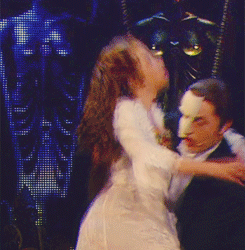
This is reflective throughout much of Christine’s relationship with Erik. In the musical, the songs become more sensual in nature & far less metaphorical. One theory I found was the speculation that “Music of the Night” was metaphorical to Christine loosing her virginity. Interesting.

The song “Past the Point of No Return” is a bit more blatant in its lyrics if still a bit poetic in how it addresses the concept of physical/sexual pleasure. The fact that it’s a duet between Erik/Christine further shows a more sexual nature to their relationship. It’s the opposite of the duet shared between Raoul/Christine “Say you need me...” which is far more innocent in nature & tone. Where as the songs/scenes between Erik/Christine radiate passion! In “Love Never Dies” adaptation, the song “Beneath a Moonless Sky” is downright blatantly descriptive of the sexual intimacy between Erik/Christine (no longer metaphorical).

As little girls we’re fed stories, fairy-tales of gentle love. Even books like Twilight capitalize on the interpretation of young love as something pure where the teenage male is (rather unrealistically) a perfect gentleman & other books where the man is the only one perceived as having a sexual nature. “Phantom of the Opera” in its own way shows that women are sexual creatures, too. By representing the innocence of her childhood, Raoul is in a way repressive of Christine’s sexuality while Erik enables her to embrace certain desires.
What furthers the sexualization of Erik - whether it’s when he’s Christine’s Angel...

her Maestro...

the Opera Ghost...
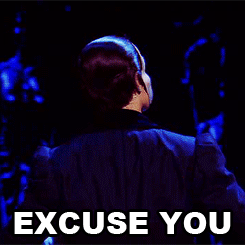
or just the ostracized, scarred, tormented, isolated flesh & blood man, Erik...
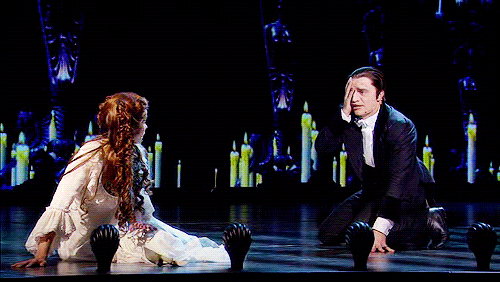
- is the fact that throughout various adaptations of the story there is a great deal that appeals to popular erotic fantasy.

There’s the eroticism of the Phantom’s aesthetic in adaptations like: Webber’s Musical, the Charles Dance Mini Series, the 2004 film, even the poetic prose of Susan Kay’s novel lends a romanticized interpretation of the character: He’s tall, dark, mysterious with an edge of danger. And in terms of physicality, the Phantom is far different from that of Raoul. While Raoul would likely be a handsome athletic man for the time period, he is also what was considered the typical handsome, the typical athlete. Males in society within Raoul’s social class were physical in that they likely had formal hunting parties (ever watched Downton Abbey?) & knew how to fence. But his wealthy likely meant he never had to do any form of real physical labor. In the Charles Dance mini series, ‘04 film, Webber’s Musical, & a novel by Fredrick Forsyth, the Phantom is decidedly more physical: from building & adjusting the Opera House’s architecture, roaming around the Opera House in unlikely places (climbing onto the rafters), not to mention how he moves large pieces of furniture like an organ all the way down to his lair; the Phantom’s backstory as an assassin in Persia! He is very much an active man who’s dealt with physical labor & hardships his whole life & therefore has a sense of strength that Raoul’s luxurious lifestyle would probably NOT enable him to have.
Let’s not forget that enigmatic mask of his!

Not to mention the cape!
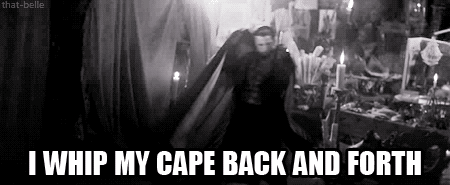
And of course the sexualization of the student/teacher-protege/mentor relationship!
Yet, despite all the illusions, the many faces Erik wears, he is far more tangible & real than Raoul. Raoul, who’s personality floats somewhere between entitled brat to nonexistent; Raul, whose entire character is defined by his wealth, his good looks & his past with Christine. Where as Erik, the Phantom has a backstory, a tortured life that makes him the man he is now. Erik who is ever changing & complex in personality & character no matter how enigmatic he’s portrayed feels far more real. Even down to how people treat him & the cruelties he’s endured simply b/c of what he looks like is a reality of our world!
As for the love Erik has for Christine - in Leroux’s novel Erik seems consumed with loneliness & desperate for companionship which makes his feeling for Christine appear obsessive in nature. Though, even at the end they are both moved to tears & Christine shows him great compassion. It’s possible that the lack of human contact that Leroux’s Erik has endured is parallel to that of extreme isolation which can psychological alter a person’s sanity. So, is it the abuse he’s faced throughout his life, the horrors he witnessed in Persia, or his isolation that has made insane? Perhaps all three in Leroux’s novel.
In other adaptations Erik’s love is portrayed as something far more pure. He loves Christine for her talents (singing, ballet, artistry) & not her physical beauty like Raoul. As a woman, I can’t tell you how annoying it is when people, men in general, comment on my looks. When someone tells you you’re pretty/beautiful, your looks aren’t something you really have control over (genetics), therefore the compliment falls flat a lot of the time. Where as if you compliment someone for their accomplishments, something they’ve worked hard for, it’s far more meaningful. The relationship between Erik/Christine in various adaptations appears to be built on companionship, trust, respect, the love of friends, the love of student/teacher, romantic love, the appreciation they have for each other’s talents, & at times their own mutual loneliness (Erik in his solitude & Christine in the sadness of her father’s death). The Raoul/Christine relationship many times focuses on how beautiful Raoul thinks Christine is. In the 1990s TV mini series adaptation starring Charles Dance, the Phantom tells Christine that Raoul is not worthy of her b/c, “He comes to the opera for the wrong reasons. He come for the sake of pretty faces rather than the music.” In a way, much like in “Beauty & the Beast” Belle/Christine at times deal with body image issues. Where as the Beast in B&B, & Erik in “Phantom of the Opera” are both judged for how they look, so are the characters Belle/Christine - both women are seen for their looks by their love interests Gaston/Raoul. Where as in the Musical, for example, Erik seems to focus mostly on Christine's talents which he later becomes attracted to.


This was essentially my interpretation of “The Phantom of the Opera” in it’s entirety, including the influence of its various adaptations. I theorize with the more sympathetic, romanticized versions of the story mostly b/c my 1st exposure to it was the 2004 film & later Webber’s Musical. I read the book after that & so my mental via of the Phantom was decidedly different to that of what Leroux likely originally intended. To me the film, musical, mini series, & Susan Kay’s novel are the ones that are most influential of how I view the story/characters compared to someone who started out reading Leroux’s book 1st. Which was an entirely new experience for me in terms of how I usually analyze/interpret things b/c I almost always read the original novel before any other adaptation.
#Phantom of the Opera#Phantom#Meta#Beauty & the Beast#Hades & Persephone#Character Analysis#Writing#Gaston Leroux#Susan Kay
342 notes
·
View notes